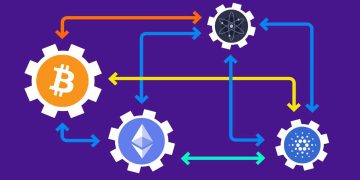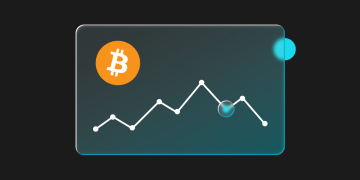In the rapidly evolving landscape of digital transformation, enterprises are continuously searching for ways to optimize their operations, reduce costs, and simplify complex processes. As organizations explore decentralized solutions, blockchain technology has emerged as a powerful tool for achieving these goals. Chain Core, an enterprise-grade blockchain platform developed by Blockstream, offers an innovative and secure solution that helps businesses streamline operations, enhance efficiency, and lower costs, all while reducing technical complexity.
This article delves into how Chain Core achieves these outcomes, offering a comprehensive understanding of how its features work together to provide real-world benefits for businesses across industries. From reducing infrastructure overhead to simplifying complex contract management, Chain Core has been designed to eliminate the technical barriers that often accompany blockchain adoption.
1. Introduction to Blockchain in Business
Blockchain technology has gained significant traction over the past decade due to its potential to disrupt traditional business models. With its decentralized, transparent, and secure nature, blockchain holds the promise of transforming how businesses manage data, conduct transactions, and interact with customers and partners.
However, despite its advantages, blockchain adoption has faced challenges such as high implementation costs, technical complexity, and the need for specialized expertise. Many organizations struggle with setting up their own blockchain infrastructure, which often requires significant investment in hardware, software, and technical talent. Moreover, integrating blockchain with existing legacy systems can be daunting, especially for industries such as finance, healthcare, and supply chain management.
Chain Core addresses these pain points by offering a streamlined blockchain solution that reduces the need for complex infrastructure and technical resources. With its advanced features, Chain Core enables businesses to implement blockchain technology quickly and cost-effectively.
2. The Key Benefits of Chain Core in Reducing Operational Costs
a. Lower Infrastructure Costs
One of the most significant advantages of Chain Core is its ability to reduce the costs associated with building and maintaining a blockchain infrastructure. Traditional blockchain platforms often require extensive investments in both hardware and software. They may also necessitate maintaining a network of nodes, managing consensus algorithms, and ensuring the proper configuration of various system components, all of which add to operational costs.
In contrast, Chain Core simplifies infrastructure management by offering an enterprise-ready solution that doesn’t require organizations to set up and maintain complex blockchain networks. Chain Core’s modular approach to infrastructure allows businesses to avoid the substantial overhead costs related to running and securing a blockchain network. It can be deployed as a private or consortium blockchain, meaning businesses can leverage shared resources without bearing the entire burden of network maintenance.
By using Chain Core, enterprises benefit from a blockchain infrastructure that is scalable, secure, and low-maintenance, reducing the need for dedicated IT teams and expensive hardware investments. This translates directly into lower operational costs.
b. Enhanced Transaction Efficiency and Cost Reduction
Another way Chain Core reduces operational costs is by increasing transaction efficiency. In industries such as finance and supply chain management, transactions often involve multiple intermediaries, each of whom adds fees and delays to the process. For example, traditional cross-border payments typically require banks and clearinghouses, each of which takes a cut and adds to the overall cost and time of the transaction.
With Chain Core, transactions are conducted directly between parties via a decentralized network, eliminating the need for intermediaries. By leveraging smart contracts and blockchain’s immutable ledger, Chain Core facilitates faster, more cost-effective transactions. This is particularly useful in sectors such as payments, where the ability to conduct transactions without intermediaries can save significant amounts of money.
Moreover, the transparent nature of blockchain transactions means that reconciliation processes are streamlined, further reducing administrative overhead and the costs associated with managing complex financial transactions.
c. Reduced Operational Overhead and Manual Labor
Manual processes are often a major source of inefficiency and higher costs within organizations. Whether it’s managing contracts, reconciling transactions, or ensuring compliance, manual intervention is both time-consuming and error-prone.
Chain Core integrates smart contracts, which automate and enforce business logic without the need for intermediaries or manual input. For example, in supply chain management, smart contracts can automatically trigger payment when goods are delivered, or in asset management, they can automatically execute trades once specific conditions are met. This reduces the need for manual intervention, which in turn lowers administrative costs and the risk of human error.
Moreover, by providing a unified, secure platform for data exchange and transaction management, Chain Core reduces the complexity associated with managing multiple systems, further decreasing operational overhead.

3. Reducing Technical Complexity with Chain Core
a. Simplified Integration with Legacy Systems
For many businesses, adopting blockchain technology involves integrating it with existing legacy systems, which can be both difficult and costly. Legacy systems often have proprietary technologies that are not easily compatible with new blockchain platforms. This results in high integration costs and requires specialized technical expertise to bridge the gap between old and new technologies.
Chain Core has been specifically designed to ease this integration process. Its modular design allows enterprises to incorporate blockchain functionality without having to overhaul their entire IT infrastructure. The platform offers a variety of pre-built connectors and APIs that enable seamless integration with existing enterprise applications, such as Enterprise Resource Planning (ERP) systems and Customer Relationship Management (CRM) tools. This reduces the technical complexity that typically accompanies blockchain adoption and minimizes the need for expensive and time-consuming integrations.
By streamlining the integration process, Chain Core allows businesses to quickly leverage blockchain technology without disrupting their existing systems, ensuring a smooth transition and reducing the technical burden on IT teams.
b. User-Friendly Interface and Simplified Development
One of the main challenges for businesses when adopting blockchain technology is the complexity of development and deployment. Blockchain platforms often require specialized knowledge of distributed ledger technologies, cryptography, and consensus mechanisms, making it difficult for organizations to bring blockchain solutions to market quickly.
Chain Core addresses this challenge by offering a user-friendly interface and simplified development tools that make it easier for enterprises to build, deploy, and manage blockchain applications. The platform provides a comprehensive suite of developer tools, including SDKs, APIs, and smart contract templates, which significantly lower the learning curve for developers. These tools allow businesses to rapidly prototype and deploy blockchain applications without requiring deep technical expertise.
By simplifying the development process, Chain Core allows businesses to adopt blockchain without the need for specialized blockchain developers, reducing the complexity of the technology stack and enabling quicker time-to-market.
c. Robust Security Without Compromise
Blockchain technology is inherently secure, but the complexity of managing private keys, encryption protocols, and transaction validation can add layers of complexity for organizations. Chain Core simplifies the security model by offering built-in multi-signature technology and multi-layer encryption, which ensures secure transactions without requiring businesses to design and implement their own security solutions.
These security features are highly customizable and allow enterprises to tailor their security protocols according to their specific needs. By simplifying the implementation of robust security measures, Chain Core reduces the technical complexity involved in protecting sensitive data and ensuring compliance with regulatory requirements, such as GDPR or KYC/AML guidelines.
4. Real-World Use Cases of Cost Reduction and Technical Simplification
a. Financial Services
In the financial services industry, Chain Core helps reduce operational costs by automating transactions and reducing the need for intermediaries. For example, banks and payment processors can use Chain Core to streamline cross-border payments, eliminating the need for correspondent banks, which typically add significant fees and delays. The platform’s ability to automate compliance checks, manage smart contracts, and facilitate secure payments lowers operational costs and simplifies the regulatory process.
b. Supply Chain Management
Supply chain management is another area where Chain Core excels in reducing complexity. By providing an immutable ledger for tracking goods and automating payments via smart contracts, Chain Core eliminates much of the manual work required in traditional supply chain systems. Enterprises can track every step of a product’s journey, ensuring transparency and accountability, while automating inventory management and reducing the costs associated with logistics and reconciliation.
c. Healthcare and Data Management
In the healthcare industry, Chain Core can streamline the management of patient records, ensuring that they are secure, easily accessible, and tamper-proof. Healthcare providers can use Chain Core to automate patient consent management, billing, and insurance claims, reducing administrative overhead and improving accuracy. By simplifying the management of sensitive data, Chain Core helps organizations comply with regulations like HIPAA while lowering the costs associated with data storage and retrieval.
5. Conclusion
In an increasingly digital world, enterprises are under constant pressure to reduce costs while enhancing efficiency and ensuring security. Chain Core offers a comprehensive blockchain solution that addresses both of these challenges by significantly lowering operational costs and simplifying the technical complexities associated with blockchain adoption.
By leveraging Chain Core‘s infrastructure, enterprises can avoid the high costs of building and maintaining their own blockchain networks. The platform also reduces transaction costs by eliminating intermediaries and automating key business processes through smart contracts. Furthermore, Chain Core simplifies the integration of blockchain with existing legacy systems, making it easier for businesses to adopt and scale blockchain technology.
Ultimately, Chain Core enables businesses to unlock the full potential of blockchain technology without the burden of high operational costs or technical hurdles, making it a compelling solution for enterprises seeking to stay competitive in an increasingly decentralized world.

















































